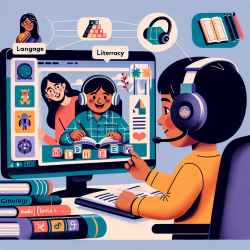Introduction
Social interactions are pivotal to human experience, influencing our well-being and quality of life. However, identifying and addressing social impairments in children has been a challenge due to the lack of comprehensive, age-appropriate assessment tools. The Protocol for a prospective, school-based standardisation study of a digital social skills assessment tool for children: The Paediatric Evaluation of Emotions, Relationships, and Socialisation (PEERS) study offers a promising solution. This study introduces PEERS®, an iPad-based tool designed to assess social skills in children and adolescents, providing practitioners with a data-driven approach to enhance outcomes for children.
Understanding PEERS®
PEERS® is a novel assessment tool that evaluates social skills through a biopsychosocial framework known as SOCIAL (Socio-Cognitive Integration of Abilities model). This model emphasizes the interplay of environmental, cognitive, and socioemotional factors in social development. The tool consists of 12 subtests that assess various domains, including attention/executive function, social communication, and socioemotional skills. By providing a comprehensive social profile, PEERS® enables practitioners to identify specific social strengths and weaknesses in children, facilitating targeted interventions.
Key Findings from the PEERS Study
The PEERS study involved a large-scale, cross-sectional assessment of children aged 4 to 18 years across Victoria, Australia. The study's objectives were to standardize the PEERS® tool and establish normative data for different age and sex groups. The findings underscore the tool's potential to revolutionize social skills assessment by offering:
- Ecological Validity: PEERS® uses real-life scenarios and interactive tasks to simulate social situations, enhancing the ecological validity of assessments.
- Comprehensive Assessment: The tool provides a detailed analysis of social cognition, communication, and executive functions, linking behaviors to underlying cognitive mechanisms.
- Immediate Feedback: The digital platform allows for automatic scoring and immediate feedback, streamlining the assessment process.
Implications for Practitioners
For practitioners in speech-language pathology and related fields, integrating PEERS® into practice can significantly enhance the assessment and intervention process. Here are some ways practitioners can leverage this tool:
- Early Identification: Use PEERS® to identify social impairments early, allowing for timely interventions that can mitigate long-term impacts on social development.
- Data-Driven Decisions: Utilize the comprehensive data provided by PEERS® to inform individualized treatment plans and track progress over time.
- Collaboration with Educators: Share insights from PEERS® assessments with educators to support a holistic approach to social skills development in school settings.
Encouraging Further Research
While the PEERS study provides a robust foundation, ongoing research is essential to refine and expand the tool's applications. Practitioners are encouraged to contribute to this body of research by exploring the tool's efficacy across diverse populations and settings. Collaborative efforts can drive innovations in social skills assessment, ultimately enhancing outcomes for children worldwide.
To read the original research paper, please follow this link: Protocol for a prospective, school-based standardisation study of a digital social skills assessment tool for children: The Paediatric Evaluation of Emotions, Relationships, and Socialisation (PEERS) study.










